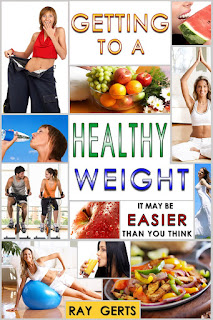It's easier to make a change in your life if you understand how overweight happens to us. If you feel guilty about your weight get over it. It's not all your fault.
What contributes to America's overweight problem?
The food industry creates foods that hijack our brains. They have fat, sugar and salt, which are highly stimulating. They condition us so that even the sights and smells associated with them activate your brain [in ways that make you want food]. In controlled individuals or controlled studies, the brain activity stops when they start ingesting the food, but in some people, it doesn’t shut off when the food is gone. Also, when your body craves food it's not just telling you to eat something, it's telling you that you need something. Maybe it's protein or maybe it's carbs, whatever, somewhere through evolution we lost the ability to understand what are body's telling us.
How can we break this cycle?
Changing how people look at food is essential. Look at the public-health success with tobacco. We didn’t change the product. But we changed how people perceive it. Now people look at tobacco and say, “That’s really disgusting.” Tobacco is easy because you can live without it, but you can’t live without food. So you have to cool down the stimulus. You have to retrain yourself to respond to food differently.
I talked about this in another post, in Europe people did have a weight problem back in the 50's and 60's but this next generation has changed, even the generation in their 40's today are much healthier than we are. Education is the way you change people's minds. In other countries, they do look at food differently. I have personally been in 15 European countries, 4 Caribbean countries and 3 Latin-American countries. In Europe, they eat differently than we do. I gained 10 pounds in the 5 weeks touring Europe. I couldn't help myself, it was like I was tasting food for the first time. I told my wife, this is real food. No fast food, no low-fat food or low-cal, it was all real food. I loved it, all of it.
Actually, that was in the 90's and I did go to Great Britain last year, for the first time since that trip to Europe, and the food scene has changed, but in defense of America, we've changed I little too. Today, if you can effort it, we have many more good restaurants that do have healthy food and stores like Whole Foods that sell healthy foods. But like I wrote about in a previous post, restaurants don't have many items on the menu that can be called healthy. They want you to enjoy the food and have a large enough portion to satisfy anyone. There lies the difference between the U.S. and other countries. In other countries the customers expectations are different. The customer wants good quality food and isn't really concerned with the quantity. They also pay more for food in stores and in restaurants.
The idea of being able to buy food cheap anytime or anywhere doesn't help people control their weight. Cheap food is also a problem. Cheap food doesn't have enough nutritional value. The manufacturer can't put nutrition in a low-cost item. They have to substitute many of the ingredients with something cheaper so they can sell the product for a competitive price. Now this is the good part when you are not getting the nutrition your body is craving, then in a short period of time your craving food again.
You see if your body didn't get what it was craving then the cravings will come back again and again. You keep eating and your liver will just turn the food into fat and store it. When your body can't use what you just ate, then it will store it and the only way your body can store excess food is to turn it into fat. So now you get it, the whole cycle, the body will store any food it doesn't need. That's how you put on weight. The body will only pass through waste matter that can't be processed. All other food will either be processed for immediate use or stored in case of emergency. The bad part is your body doesn't know when to stop storing.
So hopefully you learned a little about your body and why you gain weight. And with this info I hope losing weight will be easier.









